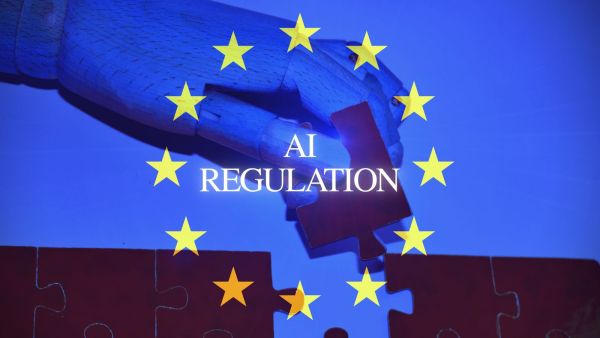ALBAWABA – The European Union (EU) earlier this week issued an AI law for the purpose of regulating and governing Artificial Intelligence (AI) implementations within its jurisdiction.
The EU will become the first to establish a broad framework, the AI law, for governing AI overall, instead of just generative AI.
This landmark AI law, officially referred to as the AI Act, was passed last Saturday after 36 hours of negotiations on how to regulate models such as ChatGPT.
Negotiators outlined specific curbs on AI applications in the Europe, which they said would not hurt innovation nor the prospects for future European AI, according to Agence France-Presse (AFP).
The "AI Act" was rushed through the EU's legislative process this year after OpenAI’s ChatGPT, a mass-market gateway to generative AI, exploded in the market late 2022.
Generative AI software, which also includes Google's chatbot Bard, can quickly produce text, images and audio from simple commands in everyday language.

EU's AI law is intended to govern and regulate the use of AI models such as ChatGPT and Bard AI without hurting European AI innovators - Shutterstock
Other examples of generative AI include Dall-E, Midjourney and Stable Diffusion, which can create images in nearly any style on demand.
The EU will be able to monitor and sanction those who violate the AI law through a new body called the EU AI office, AFP reported, which will be attached to the commission.
The office will have the power to slap a fine worth seven percent of a company's turnover or 35 million euros, whichever is larger.
"The AI Act is a global first. A unique legal framework for the development of AI you can trust," EU chief Ursula von der Leyen said in a social media post, welcoming the deal.
"And for the safety and fundamental rights of people and businesses. A commitment we took in our political guidelines - and we delivered. I welcome today's political agreement."
United States (US) President Joe Biden issued an executive order on AI safety standards in October. And while Europe is on track for the first broad law covering the sector, Chinese legislation on generative AI – specifically – came into force in August this year.









